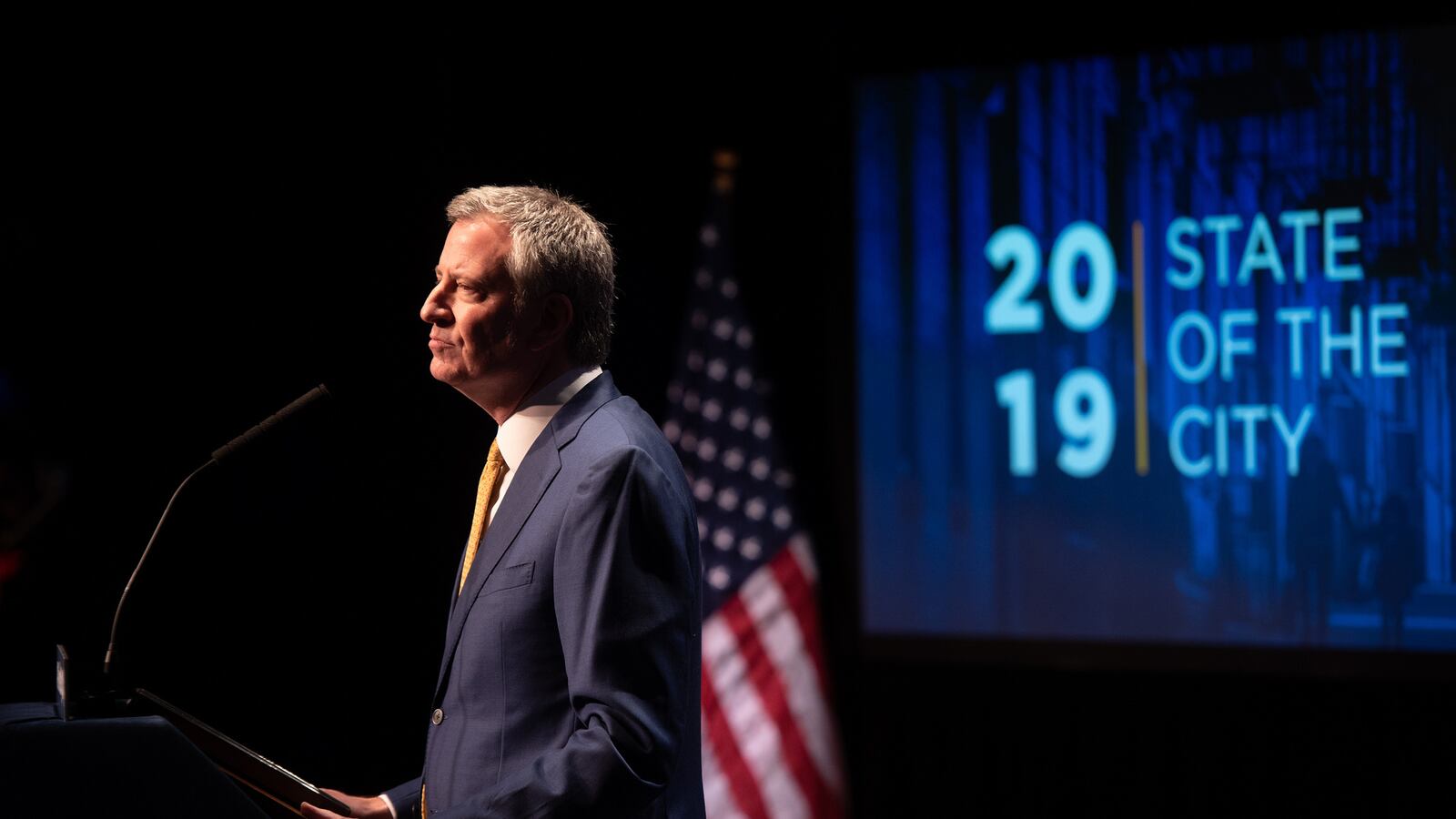Mayor Bill de Blasio touched on a few of his education accomplishments during his annual State of the City address Thursday but did not lay out any new policy initiatives.
In what has become a common refrain, the mayor hewed to safe territory by emphasizing his widely-praised universal pre-K program for 4-year-olds and redoubling his commitment to expanding that program to eventually cover all 3-year-olds as well (an effort that still requires persuading the state and federal governments to kick in $700 million).
He announced that all kindergarteners and first graders will be eligible for free eyeglasses, building on an existing program at 224 “community schools”; vowed to “fight to extend mayoral control”; and noted a plan — part of the new teachers contract — to attract top talent to Bronx classrooms.
But while the mayor has insisted education is the top priority of his second term, he has unveiled few new initiatives that affect most city students and only intermittently touched on the city’s schools in his address. Instead, he emphasized inequality more broadly and announcements from the last week such as mandatory paid leave and health care for uninsured city residents.
De Blasio did not mention his high-profile school turnaround program, Renewal, which is not surprising given that it has shown mixed results and is expected to wind down by the end of this school year. His flagship “Equity and Excellence” agenda — which includes programs ranging from expanded access to computer science to universal literacy by the third grade — only got a passing mention. Those initiatives were launched during the mayor’s first term.
The lack of a clear education policy vision, beyond what was promised in his first term, struck some observers as surprising given de Blasio’s rhetoric. The day after he was re-elected in 2017, he said changes to the city’s school system are urgently needed.
“We need the school system to look entirely different in the coming years,” he said at the time. “That will be the issue I put my greatest passion and energy into.”
More than a year later, it’s not clear how the mayor is taking great strides in that direction, said Aaron Pallas, a professor at Teachers College.
“There’s a lot of good evidence to support investments in early childhood development,” he said. A lack of other major education initiatives is “hard to reconcile” with de Blasio’s claim that education his is main focus, Pallas added.
A city hall spokeswoman dismissed the suggestion that de Blasio has not proposed significant new initiatives in the past year, pointing to the city’s plan to boost black and Hispanic student enrollment at specialized high schools, which the mayor announced in June, and the city’s broader diversity plan.
But after a reporter noted that the specialized high school plan affects just eight schools, and some researchers have concluded the diversity plan’s goals are so modest that the city would meet them through changing demographics alone, de Blasio spokeswoman Jaclyn Rothenberg offered the following statement:
Apparently you weren’t paying attention in class. The scores are in and the proof is real. Since last year, we’ve announced citywide diversity plans and put forward a groundbreaking specialized high school proposal allowing more opportunities for high school students from every zip code. Under this mayor’s control of education, we’ve witnessed record high graduation rates and college enrollment, record low dropout rates and a Pre-K seat for every four year old in New York City—we’re now taking that a step further with our 3-K expansion and putting thousands of dollars back into parents’ pockets.

